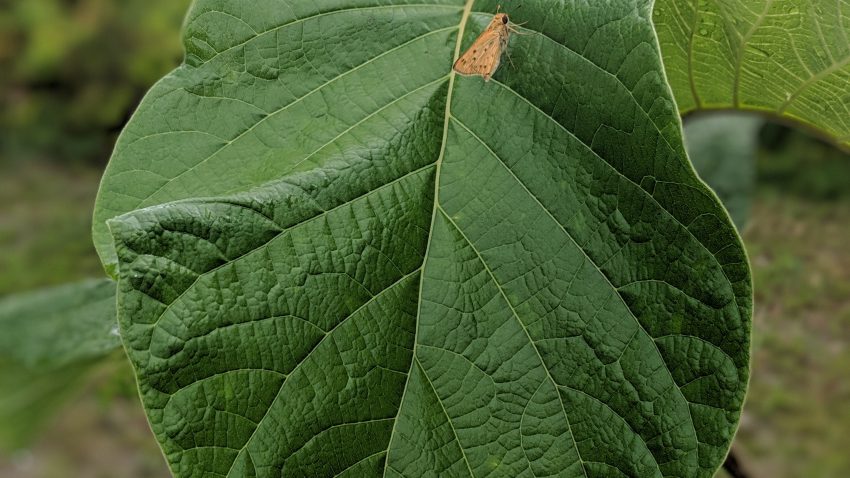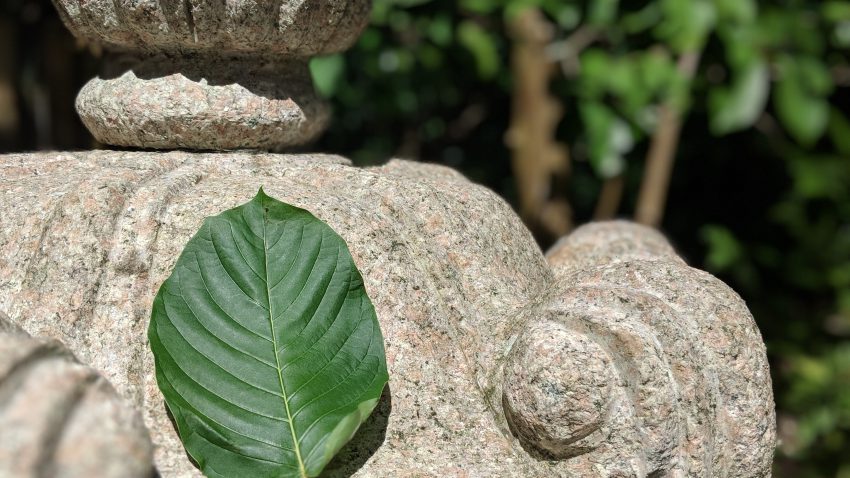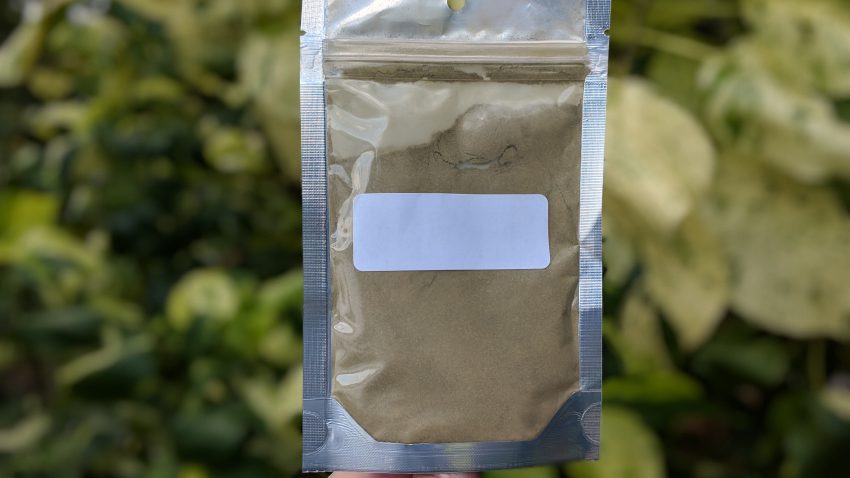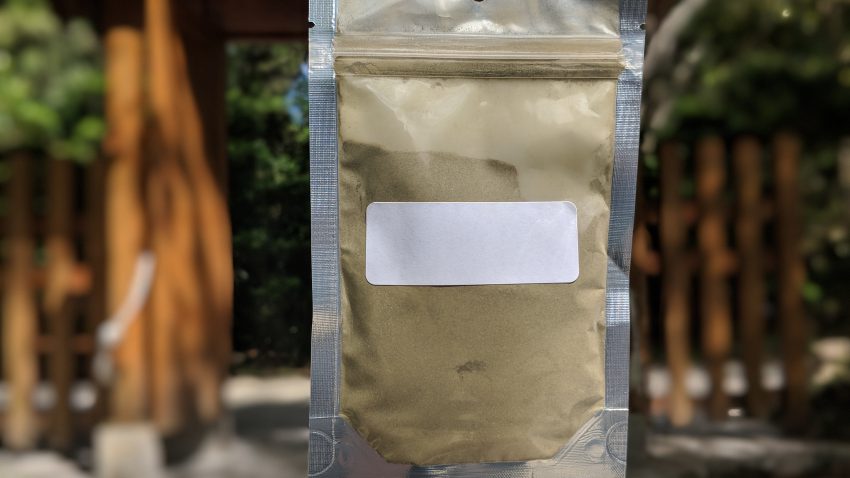WHAT IS MITRAGYNA HIRSUTA?

WHAT IS MITRAGYNA HIRSUTA?
Mitragyna hirsuta is a natural supplement similar to kratom. In fact, both come from the same ethnobotanical family, which also includes coffee! If kratom isn’t quite your cup of tea, some believe that mitragyna hirsuta powder acts as an adequate kratom alternative. However, it can be difficult to find meaningful information about this product and its alkaloid, mitraphylline.
Where Does Mitragyna Hirsuta Originate?
As you may already know, kratom – known scientifically as mitragyna speciosa – derives from Southeast Asia. It’s reasonable to assume that plants in the same ethnobotanical family originate from similar climates.
Mitragyna hirsuta is native to the jungles of Cambodia, Malaysia, Thailand, and Vietnam. It’s especially popular in Thailand because kratom products are illegal. Locals refer to mitragyna hirsuta powder and other products by the name “kra thum khok.”
The leaves of the mitragyna hirsuta tree are small, light green, and have well-defined veins running through them.
What Are the Effects of Mitragyna Hirsuta?
As with any potential kratom alternatives, you’d expect mitragyna hirsuta to carry some of the same effects when ingested. However, anecdotal user reports (which are NOT based on scientific analysis) often state that the effects of mitragyna hirsuta powder are weaker than kratom powder.
Mitragyna hirsuta users often report effects like:
- Increased energy
- Mild euphoria
- Relaxation
- Decreased anxiety
- Pain relief
But mitragyna hirsuta is not without side effects as well. The most commonly reported side effects after ingestion of mitragyna hirsuta powder are drowsiness, dizziness, and laziness. Some users even report symptoms of nausea.
Remember: there have not been any clinical trials into mitragyna hirsuta use. Supplements, whether natural or synthetic, tend to affect everyone differently. We are all unique! You may not experience the same benefits and side effects reported by other users. Always approach new ethnobotanicals with caution and start slow!
Mitragyna Hirsuta’s Primary Alkaloid: Mitraphylline
Mitraphylline is the primary alkaloid responsible for mitragyna hirsuta’s potential benefits. Interestingly enough, this alkaloid is found in kratom leaves and another unique ethnobotanical: Uncaria tomentosa, also known as “cat’s claw” because of its viney, claw-like shape.
Cat’s claw, including the alkaloid mitraphylline, has been linked to potential benefits for those suffering from rheumatoid arthritis. In one 2002 study, rheumatoid arthritis patients taking mitraphylline extracts reported a reduction in the number of painful joints compared to the placebo group. However, a different 2002 report indicated that the anti-inflammatory and antioxidant effects of cat’s claw were “independent of their alkaloid content.”
So does mitraphylline offer anti-inflammatory and antioxidant benefits to users? The consensus is unclear. Users seem to experience pain-relieving benefits, but there are not many reports of anti-inflammatory benefits. Plus, both of these 2002 studies used the mitraphylline extracted from cat’s claw, not from mitragyna hirsuta. More research is needed to validate the effects of the alkaloid mitraphylline.
How to Use Mitragyna Hirsuta
Mitragyna hirsuta leaves are commonly crushed into a powder. Mitragyna hirsuta powder can be used almost exactly like kratom powder:
- Brewed into a tea
- Washed down with water (known as the “Toss & Wash” method in the kratom world)
- Put into capsules
- Mixed with any number of foods or beverages
Is Mitragyna Hirsuta Legal in the US? Worldwide?
This potential kratom alternative is legal nationwide. As you might have heard, some states and individual cities have banned kratom products. Whether or not you agree with these bans is neither here nor there. However, mitragyna hirsuta is generally considered safe to use. In the United States, it is legal to buy, possess, use, and sell mitragyna hirsuta and products like mitragyna hirsuta powder.
Furthermore, as far as we can tell, there are no worldwide laws regarding mitragyna hirsuta. As we mentioned earlier, this ethnobotanical supplement is extremely popular in Thailand, where kratom bans took effect in the 1940s.
Despite its legality, mitragyna hirsuta is not regulated by the Food and Drug Administration (FDA), Drug Enforcement Administration (DEA), or any other government bodies. Because of this, mitragyna hirsuta products are typically labeled for “external use only.” Make of that what you will.
Mitragyna Hirsuta vs. Mitragyna Speciosa
As you’ve probably gathered, there are many similarities between mitragyna hirsuta and mitragyna speciosa (kratom). Let’s review the similarities between the two. Both…
- Derive from the Mitragyna plant family, which also includes coffee.
- Originate from similar climates and typically grow in jungles.
- Potentially offer energizing, relaxing, and anxiolytic benefits, depending on how they’re used.
- It can be taken in similar manners.
And now that we know the similarities between the two, what are the differences between mitragyna hirsuta and kratom products?
- Mitragyna hirsuta is considered to have generally weaker effects than kratom powder.
- Kratom products are outlawed in some cities and states, while no legislation exists around mitragyna hirsuta.
- Both grow naturally in Southeast Asia, but kratom is more commonly grown in Bali and Indonesia, while mitragyna hirsuta is more commonly grown in Cambodia and Vietnam. Both of these botanicals grow throughout Thailand and Malaysia.
- Mitragyna hirsuta contains higher concentrations of the alkaloid mitraphylline, while kratom contains higher concentrations of the alkaloid mitragynine.
Mitragyna Hirsuta in Conclusion: Why Should You Care?
So should you try mitragyna hirsuta? We believe that anecdotal reports offer a positive outlook on this ethnobotanical supplement. However, remember that anecdotal reports are not rooted in fact, but rather in user experience. You may not have the same experience as other users. If you decide to try mitragyna hirsuta powder as an alternative to kratom powder, we suggest you take it slow. Dosages may differ between the two, and you won’t know how your body will react until after ingestion.
All in all, based on our research, we believe that mitragyna hirsuta is generally considered safe to use. That said, continued research is necessary to fully understand the benefits of mitragyna hirsuta. Until then, we’ll continue to advocate for what’s best for our health and wellness. We believe in the power of kratom. Why not kratom’s cousin, too?
Kratom Watchdog Android & IOS

Kratom Watchdog Android & IOS
Have you heard of the Kratom Watchdog app? Kratom Watchdog is a kratom social network built from the ground up by one of the founding member of the non-profit American Kratom Association (AKA). A booming social community with a focus on kratom advocacy. Kratom Watchdog is the oldest kratom social media platform online. With over 400 videos and over 200,000 photo’s from our own kratom Nursery. And 7,000 members we have a very strong growers community that are always willing to help. Kratom Watchdog is available on Android, IOS, and at kratomwatchdog.com. We are a small self funded development studio. If you would like to donate to the development of the platform we would appreciate it. Thank you for your continued support.
![]()
![]()
THE BENEFITS OF BUYING KRATOM ONLINE
THE BENEFITS OF BUYING KRATOM ONLINE
When it comes to kratom, online shopping has several advantages over traditional, in-store shopping. From product selection to customer service and even currency options, buying kratom online is simply the best option for virtually every user’s needs.
In this article, we cover the most important points of shopping for kratom online. We go point by point, detailing online shopping’s many benefits over traditional brick and mortars. And when traditional storefronts do have the edge? We don’t shy away from acknowledging it.
Read on to learn why shopping for kratom online is the clear choice for any kratom enthusiast’s needs!
1. The Convenience of At-Home Shopping
This is the big one: convenience. There’s simply nothing more convenient than shopping for kratom online from the comfort of your own home and having it delivered to your front door. Online shopping beats the in-store experience hands down in terms of convenience.
Shopping in-store does have one thing going for it in regards to convenience: getting your kratom immediately. But considering that brick and mortar stores have a limited selection, higher prices, less knowledge about their products (more on all this below), the trade-off is clear.
Buying kratom online will take a little longer to get your kratom to you, but choosing the right vendor can make all the difference. Find an online kratom vendor with speedy shipping options, and you’ll enjoy the best of both worlds: convenient at-home shopping that gets truly quality kratom into your hands lickity split!
If you don’t mind waiting a day or two to receive your kratom, online shopping is the clear winner. You can shop wherever and whenever you please and have your kratom delivered straight to your door. There’s just no way the in-store experience can compare.
2. Improved Product Selection and Freshness
With kratom, quality is king. Not all kratom strains are created equal; differences in strains’ origins, farming practices, and even seasonal variations can make a big difference in how enjoyable an experience you’ll have.
Brick and mortar stores have limited floor space, and they often make their product selection based on which strains they can buy cheaply, not based on the quality of the product or on the user experience they offer. What that means is a limited selection, inferior products, and over-inflated prices. Read: a bad deal for you.
Buying kratom online allows you to select from a much wider variety of kratom strains. Online kratom vendors are often solely interested in selling kratom, make their product selections based on quality and customer feedback, and have first-hand knowledge of the strains’ potency.
What’s more, buying kratom online usually means you’ll receive a fresher, more potent product. That’s because online vendors tend to go through their supply more quickly, importing new batches of top-quality products on the regular.
Compared to your local brick and mortar with one strain of kratom that’s been sitting there for who knows how long, buying kratom online wins out by a landslide.
3. Knowledgeable Customer Service
Customer service is king. Whether you need assistance in picking the right products, need to process a return, or any other issue with shopping kratom, good customer service can make all the difference in the world.
And if you choose the right kratom vendor? Well, shopping for kratom online is going to offer a far better customer service experience.
The staff at brick-and-mortar shops don’t tend to be experts in the products they’re selling. Sure, some employees may have tried the different products the store happens to have available, but they probably won’t be able to talk about the ins and outs of what makes this brand or that, this strain or the other one, better for particular purposes.
When you shop kratom online, it’s a different story. Pick the right vendor, and their customer support should help you with every step of the process.
From your initial purchase to finding in-depth info and even, if necessary, help with returns and exchanges — good customer service can make all the difference in the world, and online shopping (at least with the right kratom vendor) certainly wins out there.
4. Competitive Pricing
If you’ve shopped online for other products, you’ll know: online shopping offers deals that brick-and-mortar stores simply can’t match. That’s as true for kratom as it is for any other product, and a bit of online kratom shopping is sure to keep your wallet (and your kratom supply) fuller.
It’s an unfortunate reality that brick-and-mortar stores simply have to charge more. Their costs are higher, they rent their storefront location, don’t have the same economies of scale, and they tend to get their products at a higher cost than online vendors do. All of that extra cost? Well, it means higher prices for brick and mortar customers.
Of course, there’s something to be said for shopping locally. If you buy kratom from your local storefront, you’re supporting local employers and keeping your cash in the local community. Online kratom shopping (probably) isn’t doing the same.
But in terms of pure savings for you, online shopping is the clear winner.
5. Choice of Payment Method
Buying kratom online gives users more flexibility with how they purchase and what payment methods they want to use.
At traditional brick and mortars, your options are: cash or card. It’s virtually unheard of for in-person kratom vendors to support purchases with other, more modern, and convenient payment methods.
When you shop for kratom online? A whole new world of possibilities opens up. From E-Check to bank transfer to cryptocurrency transactions, online kratom shopping offers more convenient, discreet, and secure payment methods than you’ll find in any kratom storefront.
Special note: the kratom industry is facing a new challenge, and online kratom vendors are currently unable to process credit card transactions. But Kratom Spot is doing everything it can to offer customers a variety of convenient, easy, and secure payment methods. Read more about your secure payment options here.
6. Privacy and Discretion
This last point may not be a selling point for all users, but for some, it’s priority #1. Online kratom shopping offers an experience you can’t get from a traditional storefront in terms of privacy and discretion.
At traditional stores, anyone who happens to be in the store will know exactly what you’re purchasing. Even being seen walking into some of these stores may provoke some community reaction, as kratom is often sold at head shops or other stigmatized locations.
When shopping for kratom online, privacy is king and your purchases are nobody’s business but yours. At Kratom Spot, our packages are shipped in discreet packaging, and the word “kratom” doesn’t even appear anywhere on the package. Even if a nosy neighbor were to peer at your package, there’s simply nothing to give away what you’ve ordered.
Again, this point may not matter to everyone. After all, kratom is perfectly legal and used by an ever-increasing number of individuals worldwide. But for those who, for whatever reason, value their privacy and discretion, online shopping is, yet again, the clear winner.
The Benefits of Buying Kratom Online: In Closing
No matter how you look at it, buying kratom online offers a better experience for almost any user’s needs.
Online kratom shopping offers the following benefits:
- You can shop anywhere, anytime, and have products delivered to your door
- Quick delivery to your home or business (though speed varies based on vendor and shipping method)
- Far better variety of kratom strains and products
- Fresher, more effective kratom products
- Better, more knowledgeable customer service
- Lower product prices and better specials and sales
- Greater variety of secure payment methods
- More private and discreet purchases
Virtually the only thing that traditional storefronts have going for them? Your kratom is in hand immediately after your purchase. But considering you’ll be paying more for a lower quality product… well, that’s not so much of a benefit after all.
Kratom Watchdog Android & IOS

Kratom Watchdog Android & IOS
Have you heard of the Kratom Watchdog app? Kratom Watchdog is a kratom social network built from the ground up by one of the founding member of the non-profit American Kratom Association (AKA). A booming social community with a focus on kratom advocacy. Kratom Watchdog is the oldest kratom social media platform online. With over 400 videos and over 200,000 photo’s from our own kratom Nursery. And 7,000 members we have a very strong growers community that are always willing to help. Kratom Watchdog is available on Android, IOS, and at kratomwatchdog.com. We are a small self funded development studio. If you would like to donate to the development of the platform we would appreciate it. Thank you for your continued support.
![]()
![]()
Where is Thai Kratom Harvested From?

Where is our Thai Kratom Harvested From?
Made from Thailand’s most mature Kratom leaves, Red Thai Kratom is one of our most popular strains. As its name suggests, the Thai kratom strain is imported directly from Thailand, although it is often grown in other areas across Southeast Asia. Our Red Thai kratom powder is:
- Ethically sourced using fair trade policies
- Independently verified for quality and potency
- Additive, chemical, and filler-free
WHY CAN’T I ORDER KRATOM WITH A CREDIT CARD?
WHY CAN’T I ORDER KRATOM WITH A CREDIT CARD?
Earlier this year, Kratom Spot customers could easily order kratom with a credit card or debit card. However, credit card companies have stopped working with kratom vendors altogether. This isn’t a new issue: kratom products gained national attention when the government began seizing imports around 2014. Ever since, consumers have had to use alternative payment methods (except for a short period of time between late 2020 and early 2021).
But the issue doesn’t stop there. In fact, there are many important questions left unanswered.
- It’s your money. Why can’t you pay with credit cards for whatever you want?
- Why is it so difficult to find reputable kratom dealers that take credit cards?
- How do you know which alternative payment methods are suitable for you?
To better understand the kratom-credit-card fiasco, first, remember that kratom products are largely misunderstood. Government agencies like the FDA and DEA have waged aggressive anti-kratom campaigns nationwide, attempting to stigmatize the natural supplement. Because of this, it is extremely difficult for researchers to secure funding for clinical trials.
But what do scientific and clinical trials have to do with credit card companies? Easy! To see the bigger picture, let’s take a look at another governmentally misunderstood product: cannabis. If you live in a state with recreational cannabis, you might already know what we’re talking about. If not, we’ll provide a basic overview.
Cannabis and Credit Cards: Exemplary of the Kratom Industry
If you’ve ever patronized a legal cannabis dispensary, you probably know that very few allow you to pay with credit cards. Instead, you’ll most likely have to make cash payments. If cannabis is legal, why is that?
Answer: cannabis is only legal at the state level, not the federal level. Under the Controlled Substances Act (a federal law), financial institutions like banks and credit card companies cannot profit from substances that are considered federally illegal (like marijuana).
We mentioned the stigmatization of substances like cannabis and kratom above. And until the federal government ends its stigmatization of these products, consumers will have difficulty trying to order kratom with a credit card. There is little customer support for anything the federal government deems illegal, no matter what state laws have to say.
And even though you put your money into a bank or credit card account, you have to utilize alternative payment methods to buy a legal substance like kratom. In addition, kratom products are NOT federally illegal, nor are they scheduled under the Controlled Substances Act. So what gives?
Understanding the Limitations of Kratom and Credit Cards
With cannabis, it makes a little more sense. Yes, this writer believes cannabis should be removed entirely from the Controlled Substances Act and legalized at the federal level. But where you stand on that issue is neither here nor there.
When it comes to kratom, there are NO federal laws limiting sale, possession, and use. Some states and cities have banned kratom within their borders. But those municipalities are far-outnumbered by the states and cities that have protected the sale and use of kratom products.
However, to credit card companies, it’s all one in the same. Credit card companies consider kratom transactions high-risk, despite zero federal laws disallowing the sale of kratom. They’re worried that the federal government may eventually ban kratom products, leaving financial institutions vulnerable to profit losses. So instead of taking an active stance and supporting the legal kratom industry, they take a back seat and wait to see how the kratom industry plays out.
And it doesn’t stop there. Banks and credit card companies work with a TON of high-risk industries. This includes:
- Accounting
- Agriculture
- Alcohol
- Construction
- Financial Services
- Food
- Insurance
- Media
- Oil Companies
- Real Estate
- Retail
- Transportation
- Travel Agencies
- Wholesale Companies
If you’re allowed to pay with credit cards in any of these other high-risk industries, why not kratom? Call your bank and ask. Even we can’t answer this question.
Order Kratom with Alternative Payment Methods
Credit card companies and their tomfoolery aside, there are many secure alternatives to using a credit card at Kratom Spot. We offer a variety of safe, easy-to-use payment methods to make buying kratom a breeze.
Purchase Kratom with Cryptocurrency via Coinbase
You can easily create a FREE Coinbase account to buy your kratom. Coinbase has impeccable security, a navigable interface and allows you to receive a permanent 5% discount on all kratom products at Kratom Spot!
Learn more about purchasing kratom with crypto on our blog here.
Order Kratom Using E-Checks
To order kratom products via e-check, you’ll need both your account and routing numbers. We offer the ability to checkout using both ACH e-checks and Authorize.Net e-checks. Learn more about using e-checks to buy kratom here.
The Future of Kratom and Credit Card Companies
Will you be able to order kratom with a credit card in the future? We think so. However, kratom vendors have little influence over kratom legislation at the federal level. Our thoughts? We need more funding for kratom research. When we better understand kratom products and their benefits, we’ll be able to create a safer kratom industry that consumers, vendors, and government agencies can feel good about.
Kratom Watchdog Android & IOS

Kratom Watchdog Android & IOS
Have you heard of the Kratom Watchdog app? Kratom Watchdog is a kratom social network built from the ground up by one of the founding member of the non-profit American Kratom Association (AKA). A booming social community with a focus on kratom advocacy. Kratom Watchdog is the oldest kratom social media platform online. With over 400 videos and over 200,000 photo’s from our own kratom Nursery. And 7,000 members we have a very strong growers community that are always willing to help. Kratom Watchdog is available on Android, IOS, and at kratomwatchdog.com. We are a small self funded development studio. If you would like to donate to the development of the platform we would appreciate it. Thank you for your continued support.
![]()
![]()
Is kratom legal in Florida?
Is kratom legal in Florida?
Kratom is legal throughout the vast majority of the United States. What’s more, new laws are being passed to protect kratom users and the therapeutic kratom products they enjoy throughout the US. But that isn’t true everywhere. For example, is kratom legal in Florida?
The short answer: yes, kratom is legal in Florida. But it’s not quite that simple, as individual Florida counties have passed restrictions on access to safe, legal kratom.
Kratom Legality in Florida
Kratom is legal in Florida, at least for the vast majority of the state’s 21.48 million residents. But for the 433 thousand living in Sarasota County, Florida? Well, the kratom situation’s quite a bit more restrictive.
Since 2014, Sarasota County has banned kratom. But this ban is based on a misdefinition, which may open the door to legal reform and safe, legal kratom in Sarasota County’s future.
The Kratom Ban in Sarasota County, Florida
In January of 2014, Sarasota County passed an ordinance that banned the sale, purchase, use, and possession of kratom. Violations are a misdemeanor, and punishable with a fine of up to $500.
But Sarasota County’s Ban, like so many other kratom restrictions, is based on misinformation. Sarasota County Municipal Code mistakenly classifies kratom as a “designer drug”, which it categorically is not.
When purchased from a reputable kratom vendor, kratom is an all-natural, unadulterated product with absolutely no additives or synthetic ingredients of any kind. Simply put, it couldn’t be further away from actual synthetic drugs like spice or bath salts.
Shortly after the Sarasota County kratom ban, a Change.org petition was filed in the hopes of overturning the ban. The petition got just over 600 signatures but was not enough to overturn the Sarasota County kratom ban.
Kratom in St. Johns County, Florida
Sarasota County isn’t the only place in Florida that has tried banning kratom. St. Johns County also toyed with the idea, but the ban was never implemented.
In early 2019, an ad hoc “drug task force” lobbied for a kratom ban, and the issue was taken up for discussion at a meeting of the St. Johns County Commissioners.
Following comments by some 20 kratom users sharing their experience with therapeutic kratom and the benefits it offered them, the Commissioners unanimously overturned the potential ban.
One Commissioner commented, “I see no reason whatsoever to pursue any kind of ban”, reflecting both the advocates’ first-hand experience and the so-called “task force’s” utter lack of evidence.
Ultimately, the story of kratom in St. John’s County is a triumph of small-scale advocacy over misinformation and unfounded stigma. It’s a telling reminder of how important it is for users to lend their voices to the cause of safe, legal kratom.
Which States Have Banned Kratom?
Kratom is legal throughout most of Florida, but not all states are the same. Currently, the states that have outright banned kratom are as follows:
- Alabama classified kratom’s primary alkaloids, mitragynine, and 7-hydroxy-mitragynine, as Schedule I narcotics in May 2016. This likens kratom to substances like ecstasy and heroin, an unjust misclassification.
- Arkansas banned kratom in February of 2016. In 2017, state medical examiners incorrectly stated that kratom’s alkaloids are derived from opium. It is unlikely we’ll see the Arkansas kratom ban lifted soon.
- Indiana outlawed kratom in 2014 but incorrectly listed the botanical as a synthetic cannabinoid. The legislature later amended their language, classifying kratom as a hallucinogenic substance, another misclassification.
- Rhode Island banned kratom’s alkaloids in 2017. Due to public outcry in other states, Rhode Island’s ban occurred in secret, confusing both residents and law officials. The state will vote on a measure to reverse the ban on September 1st, 2021.
- Vermont banned kratom’s alkaloids in 2016, but they were improperly classified as “synthetic drugs.” In January of 2020, lawmakers filed a bill to decriminalize kratom products, but kratom’s future is still uncertain in the state.
- Wisconsin banned kratom’s alkaloids in 2014, incorrectly associating kratom with both synthetic cannabinoids and hallucinogenic drugs. In 2019, lawmakers held informational meetings with the American Kratom Association (AKA), a step in the right direction.
But, just like Florida, several states’ counties have imposed local bans. These states include California, Illinois, and New Hampshire.
For the rest of the United States, kratom remains a safe, legal, and accessible option for users to buy kratom at their convenvience and to take control of their health and wellness.
ECO-FARMING AND KRATOM

ECO-FARMING AND KRATOM
ECO-FARMING AND KRATOM – Kratom trees, known scientifically as Mitragyna speciosa, are tropical evergreen trees in the coffee family. They grow naturally in rainforests throughout Southeast Asia. The leaves of the kratom tree have both traditional and modern significance for homeopathic medicine.
Kratom was first introduced to Western society in the 1990s but only took hold as an ethnobotanical supplement in the last decade. One potential draw for kratom’s recent rise in popularity? Sustainable, ecological farming practices, otherwise known as eco-farming.
Sustainable farming practices are vital for the continued health of our global ecosystems, including international food economies. Because of this, kratom and eco-farming practices could set the international gold standard for responsible agriculture.
And if this feels like a lot of environmental mumbo-jumbo, don’t worry! Eco-farming can be broken effectively down into seven principles, and they’re quite simple:
The Seven Basic Principles of Eco-Farming
- Crop Sovereignty: people, not corporations, should control crops like food and herbal medicines; producers and consumers should determine how our crops are produced.
- Reward Rural Livelihood: eco-farming creates healthy rural development; this, in turn, creates crop security and fights poverty.
- Smarter Agriculture: sustainable farming practices can create higher yields over time.
- Biodiversity: opting for diverse crops instead of monoculture crops like corn or soy can protect nature; biodiversity allows people to use seasonal plants at cheaper costs.
- Sustainable Soil: ecological farming creates healthier soil; eco-farmers often refrain from chemical inputs like insecticides, which can contaminate the environment.
- Pest Protection: eco-farming creates pest-resistant soil, allowing farmers to control pests and weeds without chemical inputs.
- Food Resilience: diverse and resilient crops, not monoculture crops, offer more protection from natural resource-related market changes; this creates stable crop economies, both locally and transnationally.
Think of this as your guide to eco-farming. If an agricultural practice meets these guidelines, consider it beneficial to eco-farming. Now, let’s see how kratom farming stands up to these seven principles!
Do Kratom and Eco-Farming Go Hand-in-Hand?
Eco-farming sounds great in theory: farmers and consumers hold more power over the food chain, and farming practices that could potentially contaminate the environment are abandoned in favor of ecological farming techniques. Greenpeace even calls eco-farming the combination of “modern science and innovation with respect for nature and biodiversity.”
However, critics say that eco-farming has to mesh well with reality. If ecological farming practices don’t make sense economically, they should be modified in favor of a more profitable system.
But remember when we said kratom could set the gold standard for eco-farming practices? This plant is a shining example of how to incorporate eco-farming into the modern agricultural fold. In fact, kratom meets all seven principles of eco-farming– not in theory, in reality. Here’s how:
(1) Kratom Allows for Crop Sovereignty
Kratom Spot sources their kratom from small family farms throughout Southeast Asia. In regions like Indonesia, kratom trees grow wildly in the rainforests and jungles. These tropical reserves offer rich, nutrient-dense soil without the need for chemical inputs like soil supplements or herbicides.
Here, kratom farmers and consumers control the supply, not corporations. The people have farmed kratom trees for generations. With that experience, they’ve learned how to use eco-farming practices in a sustainable, farmer-controlled setting.
(2) Kratom Rewards Rural Livelihood
The natural kratom trees in Southeast Asia bring employment opportunities, ecological advancements, and global trade opportunities to rural farmers in Southeast Asia. Not only do kratom consumers overwhelmingly support eco-farming practices, mass-farming techniques might yield lower-quality kratom. As such, kratom farmers can maintain their traditional farming practices in an era of technological agricultural advancement.
(3) Kratom is Smarter Agriculture
This is where kratom sets a decisive eco-farming example. Kratom is farmed using a variety of sustainable techniques, such as decentralized cultivation and selective pruning.
Decentralized cultivation means this: kratom farming does NOT rely on clear-cutting forests for farmland. Instead, kratom farmers use both wild growth and small, family farms to supply kratom leaf harvests. This allows native regions to maintain local biodiversity while still profiting from a major agricultural trade product. Biodiversity is vital to Southeast Asia, a region that accounts for an estimated 20 percent of all biodiversity on the planet!
Selective pruning, much like decentralized cultivation, allows for sustainable farming techniques that do not degrade local environments. It works like this: knowledgeable kratom farmers harvest only the leaves needed for the harvest. They do not harvest entire kratom trees at once. Selective pruning has many benefits:
- Only the mature leaves of the desired vein color are harvested.
- The kratom tree is left healthy and unharmed, continuing to grow new leaves.
- The kratom tree is left with the ability to feed new growth and existing growth, creating higher yields over time.
(4) Kratom Promotes Biodiversity
We’ve already mentioned that kratom aids in the maintenance of biodiversity in Southeast Asia. But what else defines the relationship between kratom farming and biodiversity?
For starters, because kratom trees are often grown using decentralized cultivation, wildlife habitats are maintained. Decentralized agriculture, an eco-farming practice, allows us to preserve the diverse habitats of the rainforests. Taken from a past Kratom Spot article:
Animals are part of a delicate natural balance that has already been disrupted in some areas by human encroachment.
But preserving biodiversity goes beyond animal habitation. Biodiversity can shield waterways from nitrogen pollution, improve air quality, and even support human health in various ways.
(5) Kratom Contributes to Sustainable Soil
The rainforests of Southeast Asia do not need chemical fertilizers, insecticides, herbicides, or any chemical inputs that risk damaging soil health. Yes, we know that some chemical fertilizers are “safe” when used properly in industrial settings. However, they must also be removed from consumer-grade products before sale. This isn’t always the case. Furthermore, these toxic chemicals can leach into groundwater and create rippling environmental effects.
But when you practice eco-farming, you don’t even need to worry about chemical inputs– they’re not there! Instead, the soil naturally cycles nutrients from the local flora and fauna.
(6) Kratom Contributes to Natural Pest Protection
As we learned above, kratom trees contribute to healthy soil and biodiversity. In turn, this creates natural pest control! You can thank eco-farming for that: avoiding chemical inputs can protect local insect populations. For example, chemical insecticides risk killing both good and harmful insects.
Good insects eat pests and support biodiversity. Furthermore, because kratom grows in tropical rainforests’ rich, nutrient-dense soil, they are extremely resilient to pest pressure. If we focused on soil health in the United States instead of sheer profitability, our crops could potentially evolve the same.
(7) Kratom Offers Crop Resilience
Kratom farmers use selective pruning, so kratom trees stay intact year-round. This offers the final guideline for eco-farming: crop resilience! Kratom is extremely resilient as it can be harvested year-round under the correct conditions. When trees are left whole, and only necessary leaves are harvested, kratom farmers know that they’ll always have a kratom harvest to look forward to.
Non-eco-farming practices, such as growing monoculture crops like corn in nutrient-lacking soil, can ruin the soil and make farming impossible for generations. On the hard, kratom’s sustainable farming methods will leave kratom trees growing for generations in the same soil we see today.
How Does Kratom Set an Eco-Farming Example
Kratom farmers are well aware of the benefits of eco-farming– they experience them. However, we can, too. We can incorporate eco-farming practices into the United States agriculture sector and enjoy increased biodiversity, increased agricultural profitability, reduce the effects of climate change, and increase our own food supply, reducing poverty.
The benefits of eco-farming go on and on. Sure, it may not be the right move for all agricultural sectors. However, elements of eco-farming – like leaving chemical inputs in the past so they don’t contaminate the environment – should be adopted in favor of more natural choices.
Kratom does not grow naturally in the U.S. But that shouldn’t stop us from using kratom farming as an example for the rest of the world’s agricultural practices. Kratom shows that eco-farming is possible. It’s ecologically possible, economically possible, and possible today! You can do your part to make eco-farming a part of our industries.
Kratom Watchdog Android & IOS

Kratom Watchdog Android & IOS
Have you heard of the Kratom Watchdog app? Kratom Watchdog is a kratom social network built from the ground up by one of the founding member of the non-profit American Kratom Association (AKA). A booming social community with a focus on kratom advocacy. Kratom Watchdog is the oldest kratom social media platform online. With over 400 videos and over 200,000 photo’s from our own kratom Nursery. And 7,000 members we have a very strong growers community that are always willing to help. Kratom Watchdog is available on Android, IOS, and at kratomwatchdog.com. We are a small self funded development studio. If you would like to donate to the development of the platform we would appreciate it. Thank you for your continued support.
![]()
![]()
The Importance Of Quality Kratom

The Importance Of Quality Kratom
The production of kratom involves thousands of farmers, encompasses dozens of strains, and spans over several distinct regions. And although kratom has deep roots in the history of the world, it’s uncertain where the future of the plant may be headed.
However, one thing is for sure –– choosing quality kratom is essential.
At Kratomleaf.us , we’re proud to provide our customers with ethically sourced, premium-grade mitragyna speciosa powder. After importing our kratom directly from Southeast Asia, we utilize strict laboratory testing methods to ensure our highest standards of purity are met. All of our products are sealed air-tight to preserve freshness and maximize customer satisfaction.
The World’s Biggest Kratom Exporters

The World’s Biggest Kratom Exporters
 We’ve delved into how kratom is made –– but where does it come from?
We’ve delved into how kratom is made –– but where does it come from?
Although kratom can be grown outside of its indigenous home of Southeast Asia, the vast majority of the supply circulating within the US and elsewhere is imported from Southeast Asian countries.
Indonesia is perhaps home to the highest volume of mitragyna speciosa powder production and exportation. Unlike other Southeast Asian countries, kratom has not been deemed an illicit substance within Indonesian borders, which has popularized kratom farming efforts. A significant amount of kratom is sourced from Indonesian provinces such as West Kalimantan on the island of Borneo.
Supposedly, farmers located in other neighboring regions such as Malaysia and even Thailand also play a role in how kratom is made, although kratom is a controlled substance in both countries. In Thailand, kratom was deemed illegal to buy, sell, import, or possess in 1979. However, despite regulation efforts, kratom has maintained its popularity and remains Thailand’s most widely consumed substance.
The Roots of Kratom

The Roots of Kratom
Mitragyna speciosa powder begins with the mitragyna speciosa tree, a plant native to Southeast Asian countries including Indonesia, Thailand, and Malaysia. Indigenous populations in these areas have been growing and harvesting kratom for centuries, and the earliest reports of kratom consumption in Malaysia date back as far as 1836 according to Burkill.
The plant’s environment is a significant factor in how kratom is made. At maturity, the mitragyna speciosa tree can grow as tall as 80 feet in ideal conditions. Its leaves have a shiny, dark green coloration and are quite large, with most full-grown leaves dwarfing the size of an average human hand. Because the kratom plant is evergreen, its leaves quickly regrow when shed, making kratom production possible year-round.
Kratom grows best in warm, humid environments where sunlight is plentiful. As such, the plant is abundant in rain forested areas such as the tropical island of Borneo.
Kratom Post-harvest Production – Blog
Kratom Post-harvest Production
Kratom Post-harvest Production – Once the leaves of the kratom plant have reached an ideal maturity, they’re picked or collected in large quantities. The freshness of the leaves plays a vital role in how kratom is made, as it alters the phytochemical concentrations that are responsible for the plant’s characteristics. For instance, red kratom strains typically consist of mature leaves, while white and green kratom strains are generally produced using younger leaves.
To create kratom powder, the leaves of the mitragyna speciosa plant undergo a drying phase in the sun or the shade. Different powders can be produced depending on the length and specifications of this drying or “curing” process. Once the leaves have been dried, they’re subsequently shredded or ground into a fine consistency. Later, an industrial grinder is used to produce an even finer mitragyna speciosa powder with the texture of flour – a fundamental step in the process of how kratom is made. Although kratom is typically dried in the sun using large-sized racks, some kratom farmers rely on additional production and processing methods to create specialty kratom strains that are often popular with online buyers.




Recent Comments